December 1, 2020 Leave a Comment
Preschool is a wonderful time for children to learn different skills and form social bonds with peers and teachers. It also provides educators and parents with a great opportunity to enrich the overall learning experience of children through music.
Research on the impact of music learning on children’s development has been going on for decades. Several studies highlight the many benefits that children get from exposure to music, such as listening to music, participating in group musical activities, and receiving music instruction in the form of instrument lessons.
Importance of Music Learning for Toddlers
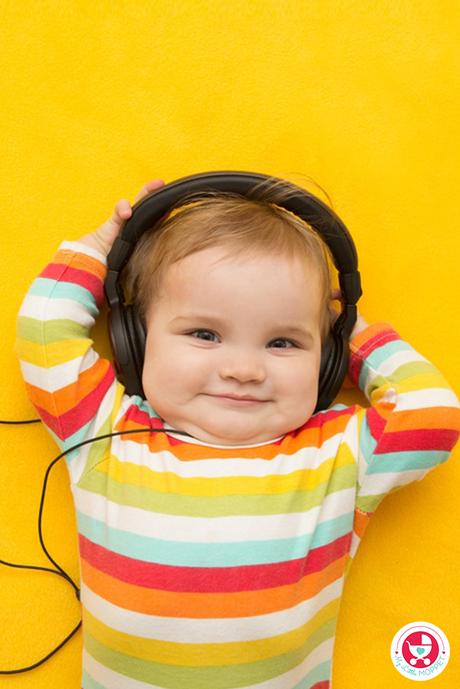
Music in Preschool
The National Association for Music Education has proposed standards stating that preschoolers should be able to sing, play musical instruments, create music, respond to music, and understand music. This is one of the reasons why children in preschool engage in a lot of activities that involve music–they sing a variety of songs, move to music and play simple percussion instruments like hand drums and tambourines. These activities are all part of music learning.
Music learning in preschool is informal yet guided, allowing children to experience it as part of play. It’s more about introducing children to concepts such as rhythm and melody through different activities than formal instruction, more about discovery and exploration rather than correction.
But why is music learning important in preschool in the first place?
More Than Do-Re-Mi
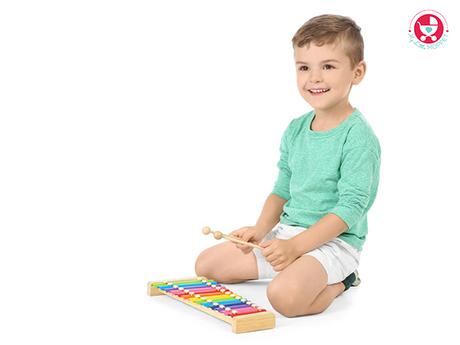
Music learning is more than just learning music–it actually supports all learning and supports other aspects of child development. A study conducted in 2016 by the University of Southern California’s Brain and Creativity Institute found that children’s brain development can actually be accelerated by musical experiences.
Music-rich activities in preschool equip children with the skills they need for a more formal school setting. Preschool music learning activities have an impact on a child’s cognitive and problem-solving abilities, gross and fine motor skills, language and communication skills, social skills, and even physical fitness.
It may look like all fun and games, but these music-filled sessions are actually lessons in disguise.
Music learning in preschool not only develops music skills such as keeping a beat, singing in tune, playing an instrument and improvising. It also nurtures self-expression, fosters creativity and builds confidence, all while supporting children’s cognitive, physical, emotional and social development.
Child Development Through Music
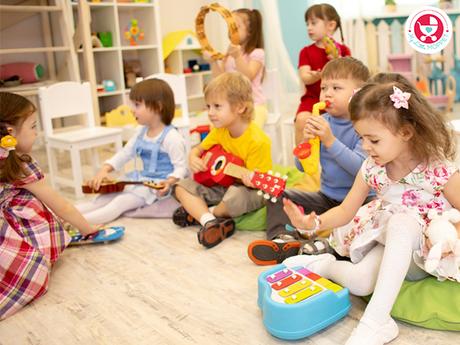
Here are some of the many ways that music learning helps preschoolers.
- Music activities develop listening skills and improve children’s ability to identify different sounds.
- Listening to music encourages intuitive and creative responses.
- Participating in music activities with other kids helps children gain confidence and overcome shyness.
- Music learning improves concentration and memory skills.
- Through learning music, children also learn to focus and pay attention.
- Children learning music learn how to keep a steady beat, sing in tune and enunciate words more clearly.
- Musical games, such as musical chairs, teach children to be aware of their surroundings and stay alert.
- Performing action songs develops children’s gross motor skills and encourages physical activity.
- Playing musical instruments lets children discover and explore the different sounds they can make, and introduces children to the foundations of music.
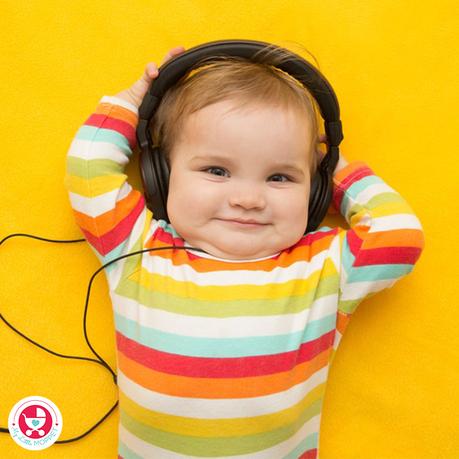
From these, we can see how music learning activities in preschool support overall child development. Musical experiences also make preschool more engaging and definitely more enjoyable.
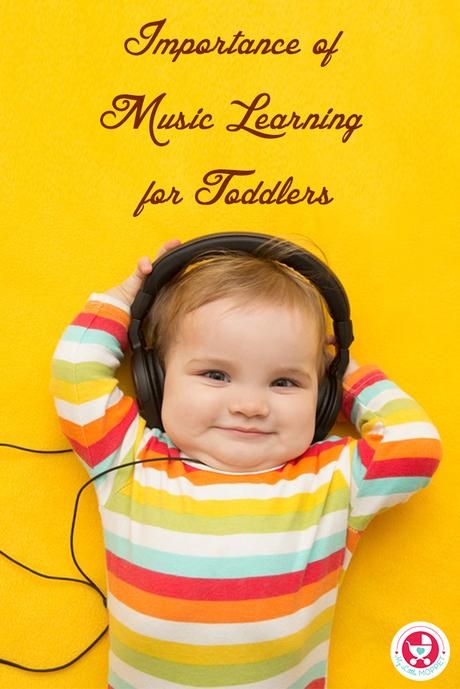
Author Bio:
Ellie Mckinsey, A staff writer at Know Your Instrument.
WhatsAppShareEmailTweetPinFiled Under: Entertainment, Play Activities, toddler Activities Tagged With: Benefits of music for toddlers, Benefits of music in brain development, Effects of music in child development, Importace of music learning in children, Importance of Music Learning for Toddlers, Music and brain development, Music and physical health of babies
